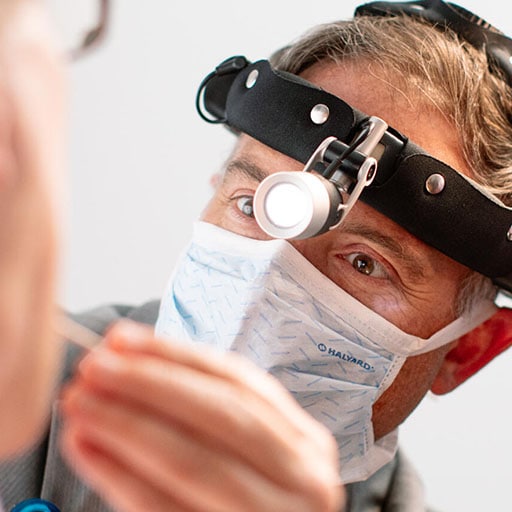Issues with Hearing? Here's When to Seek Help from a Hearing Clinic
Issues with Hearing? Here's When to Seek Help from a Hearing Clinic
Blog Article
Discovering the Area of Otolaryngology: What to Expect When You Consult an ENT
Otolaryngology, generally described as ENT, includes the diagnosis and therapy of nose, throat, and ear problems. For those experiencing associated problems, getting in touch with an ENT expert can provide clarity and alleviation. Recognizing what to expect during such examinations is important for effective communication and treatment. This introduction will detail vital aspects of the ENT experience, including common factors for brows through and the procedures included in medical diagnosis and therapy.

Recognizing Otolaryngology: A Review
Otolaryngology, frequently described as ENT (Ear, throat, and nose) medicine, is a specialized branch of medicine that concentrates on the diagnosis and treatment of problems affecting these essential areas of the body. This area includes a vast array of conditions, including those related to hearing, balance, respiratory function, and speech. Otolaryngologists are educated to manage both surgical and medical treatments, using sophisticated strategies and technologies. Their proficiency prolongs past traditional conditions, attending to issues such as allergies, sinus infections, and hearing loss. Additionally, they play a critical role in the monitoring of head and neck cancers cells, supplying thorough treatment tailored to individual client demands. Overall, otolaryngology continues to be vital for maintaining wellness and lifestyle in damaged individuals.
Common Factors to See an ENT Expert
Numerous people look for the competence of an ENT professional for a selection of factors, reflecting the diverse nature of problems that affect the ear, nose, and throat. Common concerns include persistent sinus problems, which usually leads to relentless nasal congestion and face discomfort. Allergic reactions and their associated symptoms, such as itching and sneezing, likewise motivate brows through to these experts (Otolaryngologist). Hearing loss, whether gradual or unexpected, is an additional considerable factor for assessment. In addition, people might seek evaluation for throat disorders, consisting of consistent hoarseness or swallowing problems. Sleep apnea, defined by disrupted breathing throughout rest, is frequently dealt with by ENT professionals. Each of these problems highlights the significance of specialized treatment in taking care of complicated ENT-related health concerns
Getting ready for Your ENT Visit
When planning for an ENT appointment, it is necessary to gather relevant info and take into consideration any type of certain worries. Patients should compile a detailed medical history, including previous ear, nose, or throat issues, surgeries, and present drugs. Documenting signs-- such as intensity, period, and regularity-- can offer beneficial insights for the ENT professional. In addition, people need to prepare a list of inquiries they want to ask, making sure that all problems are attended to during the see. Bringing along any kind of relevant medical records or test outcomes can better aid the ENT in comprehending the individual's condition. Finally, individuals ought to validate their consultation information, including day, time, and area, to lessen any kind of final complication. Appropriate prep work can boost the performance of the appointment and bring about much better end results.
What to Expect During the Examination
As the consultation begins, the client can expect to engage in a complete conversation with the ENT expert about their signs and case history. The specialist will inquire regarding the duration, regularity, and seriousness of signs such as hearing loss, nasal blockage, or sore throat. Additionally, the person's previous medical conditions, drugs, and any kind of relevant household history will certainly be reviewed, aiding the professional in creating a complete understanding of the person's health. The ENT might additionally inquire about way of living factors, such as exposure to allergens or irritants. This open discussion establishes a foundation for the examination, ensuring that the individual's concerns are resolved and establishing the phase for any type of necessary analyses or referrals for therapy.
Diagnostic Tests and Treatments in Otolaryngology
A series of diagnostic tests and procedures are important in otolaryngology to accurately examine and identify conditions impacting the throat, ear, and nose. Common examinations consist of audiometry, which determines hearing feature, and tympanometry, examining center ear pressure. Nasal endoscopy permits visualization of the nasal passages and sinuses, while laryngoscopy examines the throat and singing cables. Imaging methods, such as CT scans and MRIs, offer thorough sights of head and neck structures. Allergic reaction testing may additionally be conducted to identify triggers for sinus or respiratory my website concerns. These analysis devices enable ENT professionals to establish a comprehensive understanding of individuals' problems, making sure customized and effective management plans. Proper medical diagnosis is important for effective therapy outcomes in otolaryngology.
Therapy Options Supplied by ENT Specialists
ENT experts provide a selection of therapy alternatives tailored to address specific conditions impacting the nose, throat, and ear. These treatments vary from conventional strategies, such as medicine and lifestyle adjustments, to more intrusive treatments. As an example, allergies might be managed with antihistamines or immunotherapy, while persistent sinusitis may need nasal corticosteroids or sinus surgical treatment. For hearing loss, ENT experts typically advise listening device or surgical interventions like cochlear implants. In instances of throat conditions, choices can consist of speech treatment or medical treatments to eliminate obstructions. Additionally, they might supply guidance for managing rest apnea, including the usage of CPAP tools or medical treatments. Generally, the goal is to enhance clients' high quality of life with individualized treatment and reliable therapy methods.
When to Look For Follow-Up Treatment With an ENT
Acknowledging when to seek follow-up treatment with an ENT professional is vital for taking care of recurring symptoms or complications connected to ear, nose, and throat problems. Clients ought to take into consideration setting up a follow-up visit if symptoms persist despite first therapy, such as persistent ear discomfort, nasal blockage, or throat discomfort. Modifications in hearing, balance issues, or unusual nasal discharge may also call for further assessment. In addition, if a patient experiences adverse effects from prescribed drugs or has gone through a medical procedure, follow-up care is crucial to monitor recuperation and attend to any kind of concerns. Prompt appointments can ensure efficient administration of problems, protect against potential difficulties, and offer comfort concerning one's health and wellness. Looking for follow-up care promotes proactive health monitoring in otolaryngology.
Regularly Asked Concerns

What Certifications Should I Seek in an ENT Specialist?
When looking for an ENT professional, one should look for board accreditation, relevant experience, and solid client reviews. In addition, efficient interaction abilities and a thoughtful technique can considerably enhance the overall therapy experience.
Exactly how Do I Choose the Right ENT for My Demands?
Selecting the ideal ENT expert entails reviewing their qualifications, experience, and patient reviews (Otorrinolaringologia). It is important to contemplate their communication style and method to therapy, ensuring they line up with the individual's specific health and wellness demands and choices
Are There Any Type Of Dangers Connected With ENT Procedures?
The dangers connected with ENT treatments may consist of infection, blood loss, anesthesia difficulties, and possible damage to bordering structures. Individuals ought to discuss these threats with their doctor to recognize private worries and Read More Here warranty educated decisions.
How Can I Manage Anxiety Prior To My ENT Appointment?
To manage anxiousness prior to an appointment, people can exercise deep breathing workouts, imagine positive outcomes, prepare inquiries in advance, and look for support from buddies or family, promoting a feeling of confidence and peace.
What Should I Do if I Experience Negative Effects From Therapy?
The individual should immediately go to this website report them to their health care service provider if side effects from therapy take place. Changes to treatment or additional treatments may be necessary to assure security and performance in handling their condition - ENT. As the consultation starts, the person can expect to involve in a detailed conversation with the ENT expert concerning their signs and symptoms and medical background. These diagnostic tools make it possible for ENT specialists to create an extensive understanding of individuals' problems, making sure customized and efficient monitoring strategies. ENT professionals use a variety of treatment alternatives tailored to address certain conditions impacting the nose, throat, and ear. When looking for an ENT specialist, one need to look for board accreditation, pertinent experience, and solid person reviews. Choosing the ideal ENT expert includes evaluating their qualifications, experience, and individual evaluations
Report this page